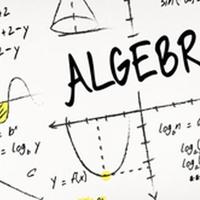Chapter 17, From Bondage to Freedom, part 1
Capítulo 17, De la esclavitud a la libertad, parte 1
Chapitre 17, De la servitude à la liberté, partie 1
第17章 束縛から自由へ その1
Capítulo 17, Da escravidão à liberdade, parte 1
Moses had said, from the first, that the people of Israel would have to think of “I Am” as the deliverer from bondage; but they were not, at the time when he said it, advanced enough in their algebra to understand that idea properly.
Moisés tinha dito, a partir do first, que o povo de Israel teria de pensar no "Eu Sou" como o libertador da escravidão; mas na altura em que o disse, não estavam suficientemente avançados na sua álgebra para compreenderem bem essa ideia.
So he gave them, as an hypothesis to work on for the time being, that “I Am” did not like the people of Isra¨l to eat and drink and smell unwholesome things.
Assim, deu-lhes, como hipótese a trabalhar por enquanto, que "Eu sou" não gostava que as pessoas de Isra¨l comessem, bebessem e cheirassem coisas pouco saudáveis.
He wished to make them attend to their own affairs, and think as little as possible about what was done and thought outside of their own land.
Hee desejava fazê-los atender ao seu próprio affairs, e pensar o mínimo possível sobre o que foi feito e pensado fora das suas próprias terras.
But, after the time of Elijah, there came a change.
Mas, após o tempo de Elias, houve uma mudança.
A higher kind of algebra came into use.
Um tipo mais elevado de álgebra entrou em uso.
Its incarnation was called Isaiah.
A sua encarnação chamava-se Isaías.
The imagination of the Hebrews broke loose from the hypothesis that “I Am” had wishes and likes about the people of Isra¨l different from what wase right for all the rest of the world.
||||||||||||||||||||||||||était||||||||
A imaginação dos hebreus libertou-se da hipótese de que "Eu sou" tinha desejos e gostos sobre as pessoas de Isra¨l different do que era certo para todo o resto do mundo.
When that hypothesis was taken away, the imagination of such people as Isaiah took wings and flew to—well—we do not know where, but we call it Infinity.
Quando essa hipótese foi tirada, a imaginação de pessoas como Isaías tomou asas e flew para... não sabemos onde, mas chamamos-lhe Infinity.
We know nothing about Infinity; except that it comes when a chain is loosened.
Não sabemos nada sobre Infinity; excepto que vem quando uma corrente é solta.
If you want to understand what it was that happened to Isaiah, and what Infinity means in algebra, this is how you can find out.
Se quiser compreender o que aconteceu a Isaías, e o que Infinity significa em álgebra, é assim que pode find sair.
Get a bowl and dip up some of the water out of a barrel in which a gnat has laid her eggs.
Tirar uma tigela e mergulhar parte da água de um barril em que um mosquito tenha posto os seus ovos.
Little wigglers are born from those eggs.
|vers de terre|||||
Desses ovos nascem pequenos perucas.
If you watch them you will see that they swim in different positions, some with their tails uppermost, some with their heads uppermost.
|||||||||||||||||à l'endroit|||||
Se os observar, verá que nadam em posições different, alguns com a cauda em cima, outros com a cabeça em cima.
There may also be some worms, who do not swim much, but wriggle about at the bottom of the bowl.
Também pode haver alguns vermes, que não nadam muito, mas que se mexem no fundo da tigela.
Perhaps if we could hear them talking we should hear them quarrelling about which was the right position.
Talvez se pudéssemos ouvi-los falar, devêssemos ouvi-los a discutir sobre qual era a posição correcta.
Some of them might be disputing about what would happen to them in the future.
Alguns deles podem estar a disputar sobre o que lhes aconteceria no futuro.

